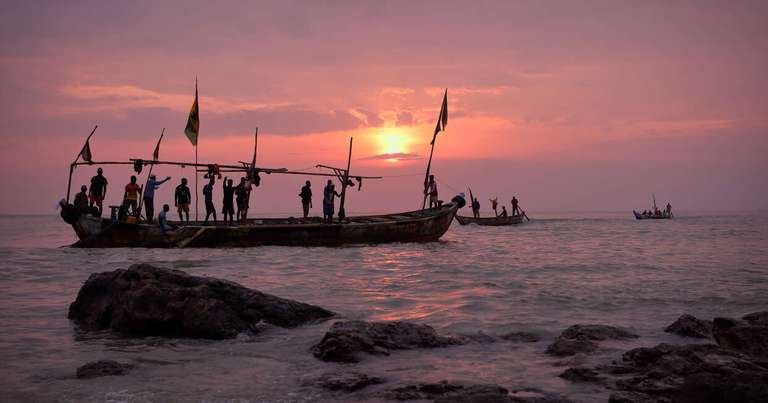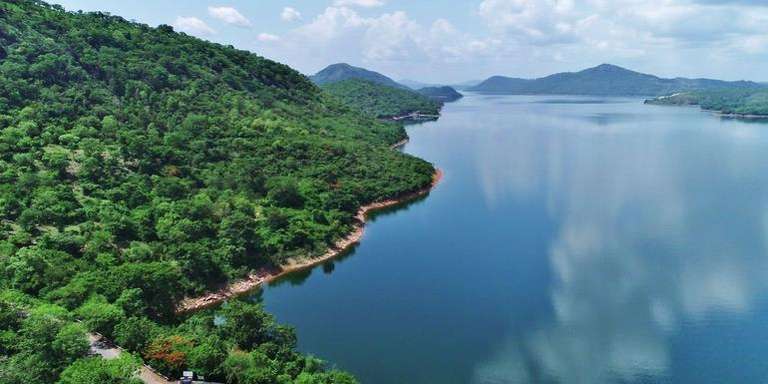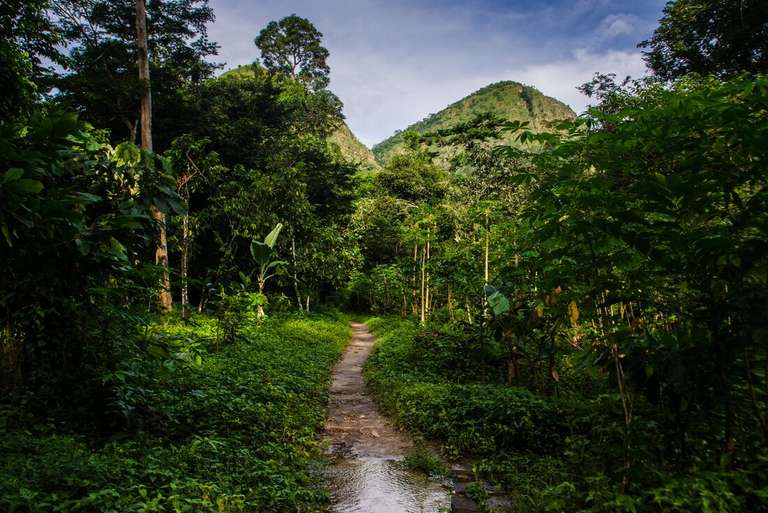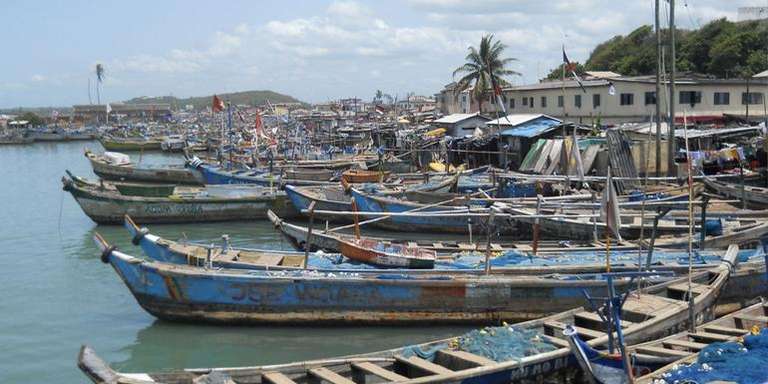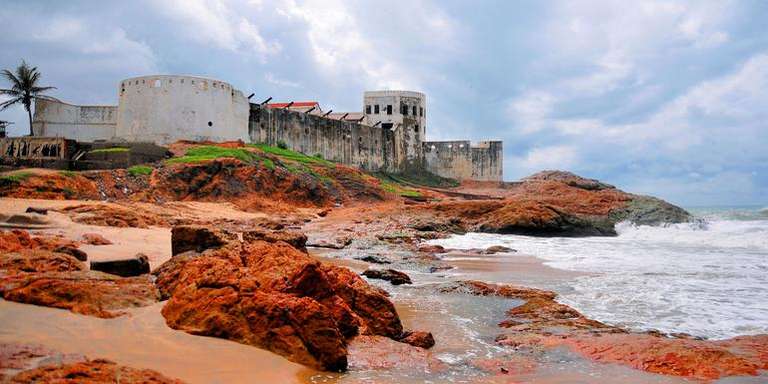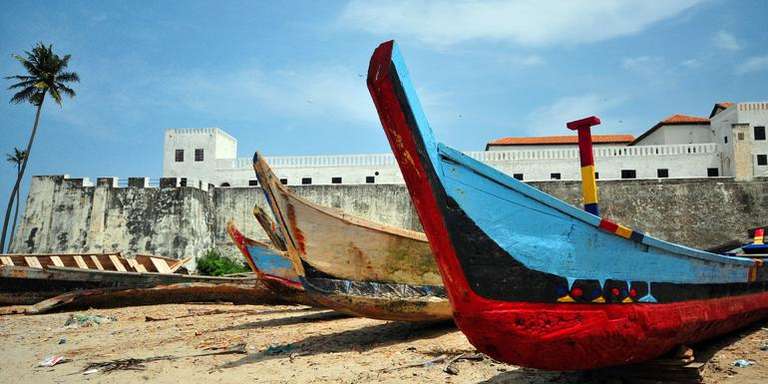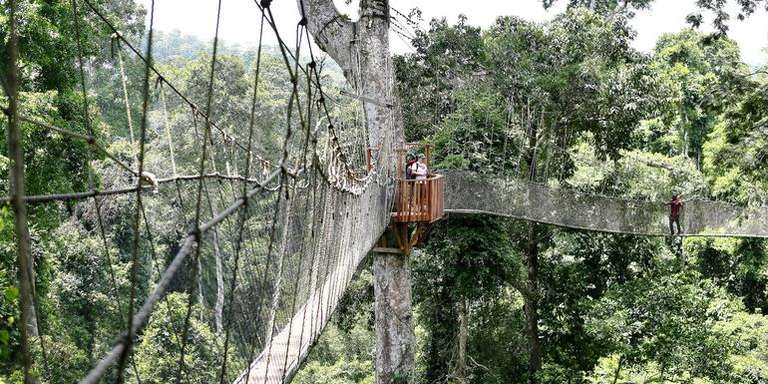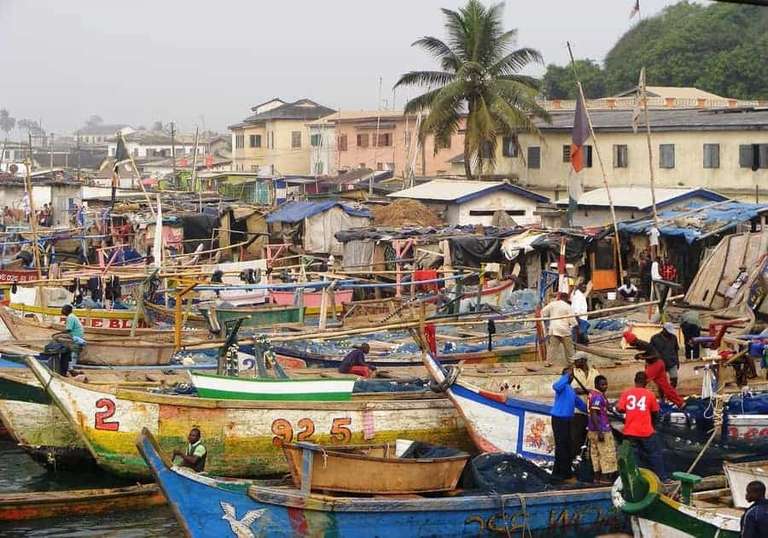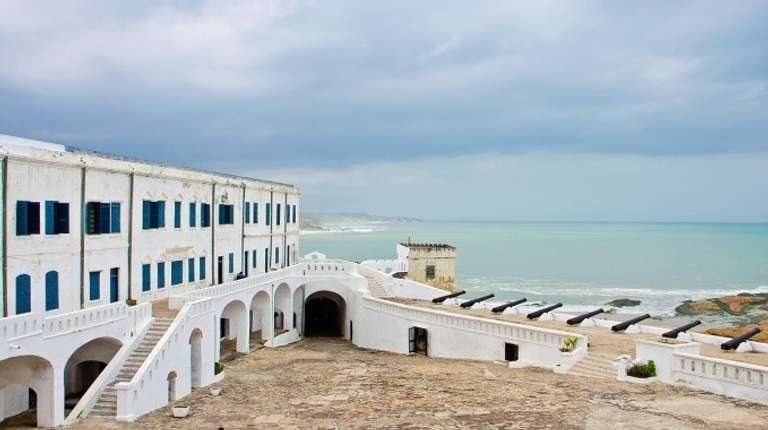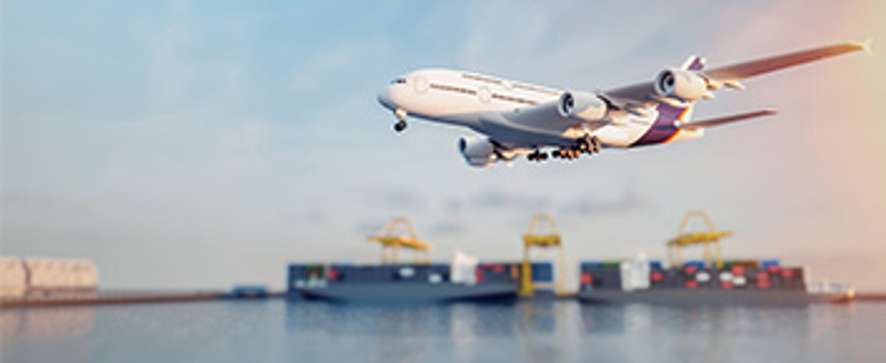Best Time to Visit Ghana
- Excellent
- Good
- Fair
- Poor
- JanAvg Daily: 30 ° CAvg Nightly: 24 ° C
- FebAvg Daily: 31 ° CAvg Nightly: 25 ° C
- MarAvg Daily: 31 ° CAvg Nightly: 25 ° C
- AprAvg Daily: 31 ° CAvg Nightly: 25 ° C
- MayAvg Daily: 29 ° CAvg Nightly: 24 ° C
- JunAvg Daily: 28 ° CAvg Nightly: 23 ° C
- JulAvg Daily: 27 ° CAvg Nightly: 23 ° C
- AugAvg Daily: 26 ° CAvg Nightly: 22 ° C
- SepAvg Daily: 27 ° CAvg Nightly: 23 ° C
- OctAvg Daily: 29 ° CAvg Nightly: 23 ° C
- NovAvg Daily: 30 ° CAvg Nightly: 24 ° C
- DecAvg Daily: 30 ° CAvg Nightly: 24 ° C
- Excellent
- Good
- Fair
- Poor
When is the best time to visit Ghana: Quick Facts
| High season | November to March |
| Low season | April to October |
| All seasons | November - March (dry season), April - October (wet season) |
When to visit Ghana: Seasonal Overview
Dry season in Ghana — November to March

The dry season, spanning from November to March, is overall the best time of the year to go to Ghana. During these months, Ghana experiences minimal rainfall and clear, sunny skies—an ideal environment for travelers. With pleasant to hot temperatures, this period beckons you to immerse yourself in Ghana’s beaches and coastline, as well as the rich culture and historical marvels. From the lively markets of Accra and Kumase to the haunting beauty of coastal forts and tranquil beaches, the dry season in Ghana provides the ultimate backdrop for a memorable and immersive travel experience.
| Average temperatures | 24° C (75° F) to 35° C (89° F) |
| Rainfall | 14mm – 32 mm |
| Is the dry season a good season to visit Ghana? | Yes, this is the best time to visit Ghana with clear skies, reduced rainfall, vibrant cultural festivals, and ideal conditions for outdoor activities. |
Highlights:
- Experience vibrant festivals like Homowo and Aboakyir during the dry months, showcasing Ghana’s rich traditions.
- Relax on serene beaches like Busua and Kokrobite as the dry season in Ghana offers clear skies and minimal rainfall—meaning you can enjoy sunbathing and clear sea conditions.
- Discover the diverse wildlife at parks like Mole National Parks and Shai Hills Resource Reserve. The dry season is the perfect time to spot animals like green monkeys, elephants, and more in their natural habitat.
- Trek the Wli Waterfalls Trail or visit the Larabanga Mosque, immersing yourself in Ghana's natural beauty and historical sites, made accessible by dry weather.
- Many beachfront restaurants and cafes offer outdoor seating in the dry season, enjoy freshly prepared meals and refreshing beverages while taking in the beach views.
- The dry season is also one of the best times to visit Accra, with reduced crowds and also local festivals like the Homowo Festival, celebrated by Ga people where you can experience traditional music, dance and customs.
Travel tips:
- Temperatures can be warm and the sun strong, so pack lightweight, breathable clothing, such as cotton fabrics, to stay comfortable.
- The dry season is the best time to travel to Ghana, making it peak tourist time too, so it's advisable to book accommodations in advance to secure your preferred places to stay, especially in popular beach towns and tourist destinations.
- While the dry season reduces the presence of certain insects, it's still wise to carry insect repellent to protect yourself from mosquito bites, especially during the evenings.
Wet season in Ghana — April to October

Monsoon season in Ghana can be rather confusing. Northern Ghana has a rainy season from April to mid-October while the southern part of the country experiences the most rain from April to June before a momentary respite from the rains between July and August, and then again some rain picking up in September and October. Rainfall can restrict access to some inland places and also make it difficult to spot animals, but the country becomes lush and green. June to September are still considered some of the best months to visit Ghana with many tourists arrive in the country, so you should make your travel and accommodation reservations early.
| Average temperatures | 22° C (72° F) to 31° C (88° F) |
| Rainfall | 35mm – 208 mm |
| Is wet season a good season to visit Ghana? | Maybe, if you appreciate lush landscapes, vibrant festivals, waterfalls and active wildlife. |
Highlights:
- Ghana's waterfalls, such as Wli Waterfalls and Boti Falls, are at their majestic best during the monsoon season. The increased water flow enhances their beauty, providing a refreshing and awe-inspiring experience for visitors.
- The wet season in Ghana transforms into a lush, green paradise. Vibrant vegetation and blooming flowers create picturesque landscapes, making it a haven for nature enthusiasts and photographers.
- Several cultural festivals, including the Odwira Festival in Akuapem and the Dipo Festival in Manya Krobo, are celebrated during the wet season. These vibrant events offer travelers a unique chance to engage in local traditions, dances, and rituals, providing a deep cultural immersion.
- Despite the rain, this season allows for enjoyable water-based activities. Like river cruises in the Volta River, canoeing through Nzulezo villages, and fishing adventures at Lake Volta, providing a unique perspective of Ghana’s scenic beauty and aquatic life.
- Abundant rainfall rejuvenates national parks and wildlife reserves during the wet season. This period is perfect for wildlife enthusiasts, as animals are more active, and birdwatching becomes exceptionally rewarding with numerous species in sight.
Travel tips:
- The wet season in Ghana can bring heavy rains so pack lightweight, quick-drying clothing, waterproof footwear, and a durable rain jacket to stay comfortable and dry.
- Mosquitoes are more prevalent during the wet season. Carry and wear insect repellent, and consider staying in accommodations with mosquito nets for added protection against malaria and other mosquito-borne diseases.
- Be prepared for potential travel disruptions due to the rain. Have a flexible itinerary and allow extra time for travel between destinations.
If you're considering a trip to Ghana and desire a more personalized experience, we recommend taking a customized trip. A tailor-made trip to Ghana allows you to explore the country in a way that aligns with your interests and preferences. Whether you're interested in cultural immersion, adventure, or relaxation, a personalized trip ensures that your travel experience is uniquely tailored to your needs.
Weather in Ghana: Rainfall and Temperatures
| Month | Jan | Feb | Mar | Apr | May | Jun | July | Aug | Sept | Oct | Nov | Dec |
| Avg Daily (°C) | 30 | 31 | 31 | 31 | 29 | 28 | 27 | 26 | 27 | 29 | 30 | 30 |
| Avg Nightly (°C) | 24 | 25 | 25 | 25 | 24 | 23 | 23 | 22 | 23 | 23 | 24 | 24 |
| Avg Daily (°F) | 86 | 88 | 88 | 88 | 85 | 83 | 81 | 79 | 81 | 85 | 86 | 86 |
| Avg Nightly (°F) | 76 | 77 | 77 | 77 | 76 | 74 | 74 | 72 | 74 | 74 | 76 | 76 |
| Avg Rainfall (mm) | 16 | 37 | 73 | 82 | 145 | 193 | 49 | 16 | 40 | 80 | 38 | 18 |

